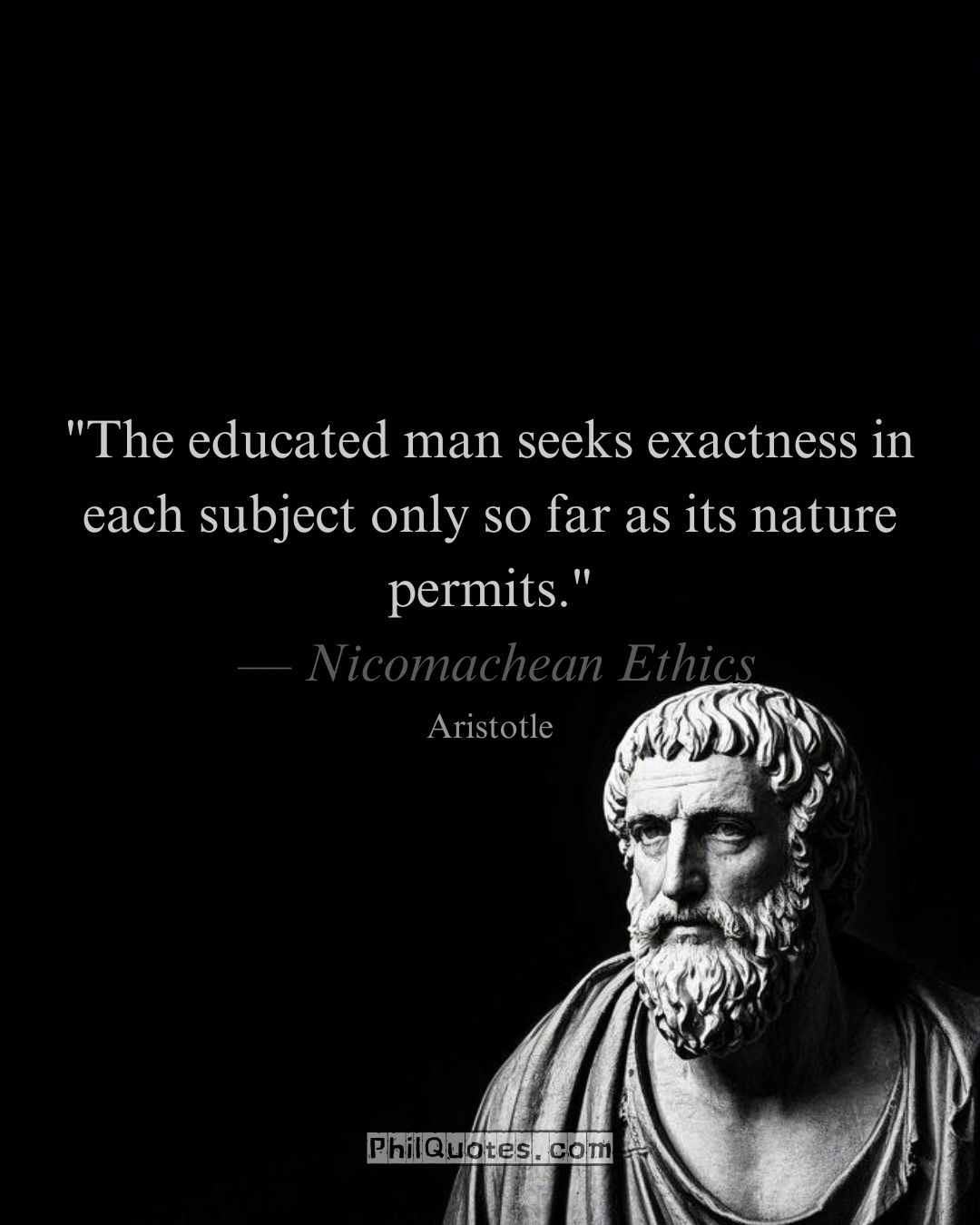
“The educated man seeks exactness in each subject only so far as its nature permits.”
— Aristotle, Nicomachean Ethics, Book I, Chapter 3
Key Explanation
Aristotle’s eudaimonia (flourishing) requires two pillars:
- Complete Virtue
- Harmonizing moral excellence (courage, justice, wisdom) in daily choices.
- Example: A doctor refusing kickbacks to prioritize patient care (integrity in action).
- External Goods
- Resources (health, financial stability, community) enabling virtue’s practice.
- Example: Philanthropists funding free clinics (wealth enabling justice).
Modern Applications
① Corporate Leadership
- Virtue: CEO enforcing ethical supply chains despite profit pressures.
- Resources: Using revenue to upskill workers, creating a legacy beyond quarterly earnings.
② Mental Health Advocacy - Virtue: Therapists developing trauma-informed care frameworks.
- Resources: Securing grants to offer sliding-scale services, ensuring accessibility.
③ Creative Pursuits - Virtue: Novelist rejecting plagiarism offers to write original stories.
- Resources: Patreon supporters funding the artistic process.
Why This Matters Today
- Silicon Valley Paradox: Tech giants with vast resources (external goods) often lack virtue (data ethics scandals).
- Stoic Revival: Modern Stoicism’s focus on virtue aligns with Aristotle but risks undervaluing systemic support (therapy, social safety nets).